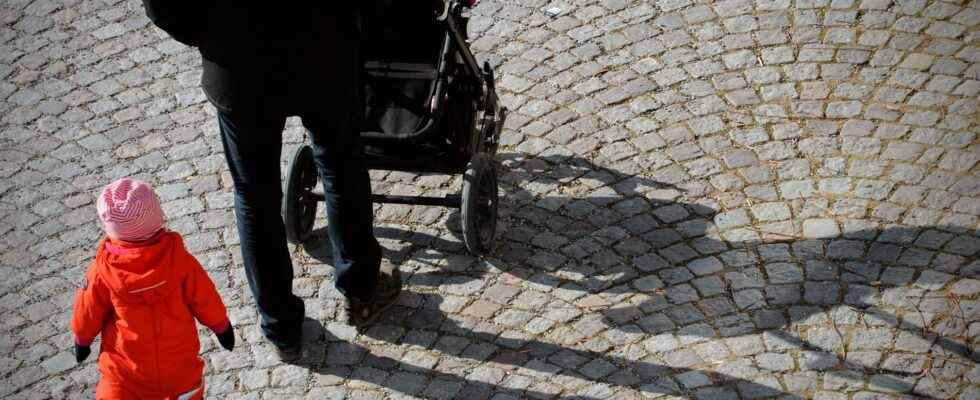Published: Less than 30 min ago
People who are far from the housing market do not get the help they need, according to the City Mission. The organization fears more homeless people as economic vulnerability increases.
– Having a home is a human right, says Åsa Paborn, director of the Stockholm City Mission.
The City Mission has looked at how some of the country’s large municipalities support people who have nowhere to live. The organization sees a worrying trend.
– We meet people who have been turned away when they came to social services – perhaps after a divorce or as a single mother with several children. People don’t think they get help because they don’t feel it’s hard enough, says Åsa Paborn, director of Stockholm’s city mission and spokesperson for Sweden’s city missions.
Financial pressure
For those who find themselves in social homelessness, where there is often a problem with substance abuse or mental illness, it is possible to get help from social services in accordance with the Social Services Act. The city mission’s view is that so-called structural homelessness, where one is without long-term housing for financial reasons, provides more limited opportunities for support.
This is also where you see an increased need for help.
– We see that it is more difficult to get support and this is explained by the municipalities by the fact that there has been more financial pressure. You can’t afford it, but have to prioritize among groups, says Åsa Paborn.
Here, the City Mission believes that the Social Services Act needs to be reviewed to ensure that help reaches more people and that the responsibility of social services becomes clearer.
In addition, they want to see a special ban on evictions for families with children where the number of evictions has risen in recent years. The organization sees evictions of families with children as particularly serious.
– Families with children should not have to worry that they have nowhere to live or that they have to move every three months.
“Has crashed”
Greater demands also need to be placed on the municipalities in how to map homelessness – the work differs greatly around the country and there are still few municipalities that do it, according to the City Mission.
The latest national survey carried out by the National Board of Health and Welfare in 2017 showed that around 33,000 people in Sweden lived in homelessness – 62 percent and 38 percent women. A new survey is to be carried out in 2023.
But mapping homelessness is complicated and the City Mission believes that the number of homeless people is large. It is feared that the number of people in homelessness will increase as a result of the tough economic situation.
– Homeless for financial reasons does not mean that you do not have a roof over your head. But you may live with friends or remain with your divorced partner or move around between expensive housing contracts. This is an effect of the fact that we have a housing market that has crashed, says Åsa Paborn.
Valued higher
The city mission believes that it is time to really roll up our sleeves and prioritize the housing issue as well as the issue of homelessness. Sweden has long been far too bad at that, says Åsa Paborn. In addition to more housing, it also needs to be easier to get into the housing market.
– The housing policy must be reevaluated, she says and continues:
– You need to marry housing policy with social policy. Now you see people separately and housing construction separately, but it is the people who will live in the housing. These are treated as separate issues and will no longer work.
Facts
New homelessness strategy
The then government decided last year on a new national homelessness strategy.
The strategy has been developed partly to determine what measures are needed to reduce the number of children and adults who are homeless, and partly how to prevent people from ending up homeless.
The government has given the National Board of Health and Welfare the task of surveying homelessness in Sweden. During the spring, the authority will, among other things, conduct two surveys. One of them is aimed at social services, activities that meet people in homelessness and people who are homeless.
The most recent survey carried out by the National Board of Health and Welfare in 2017 showed that around 33,000 people lacked their own home – 62 percent and 38 percent women. Foreign-born made up 43 percent of the homeless.
People with substance abuse or mental illness were slightly fewer in 2017 compared to the survey in 2011.
Of the entire group of homeless people, 18 percent were in acute homelessness – 41 percent women and 59 percent men. A third of the women were in acute homelessness as a result of intimate partner violence.
Source: National Board of Health and Welfare, Government Offices
Read moreFacts
Homelessness
The National Board of Health and Welfare’s definition of homelessness, which the city missions also use, includes four different housing situations:
• Acute homelessness: People in urgent need of shelter who are referred to emergency accommodation, shelters, emergency accommodation or sleep on the street.
• Living in an institution or category housing: Inmates in a correctional institution or treatment center or supported housing in municipal, regional or private management and who three months before discharge still do not have an arranged home.
• Long-term housing solutions: People who live in a trial apartment or training apartment arranged by the municipality or who have received a social or municipal housing contract as a result of not being able to get housing on their own.
• Self-arranged short-term accommodation: People who live temporarily and without a contract with friends, acquaintances or relatives, or who have a live-in or second-hand contract that is shorter than three months.
Source: The National Board of Health and Welfare, Sweden’s urban missions
Read more
